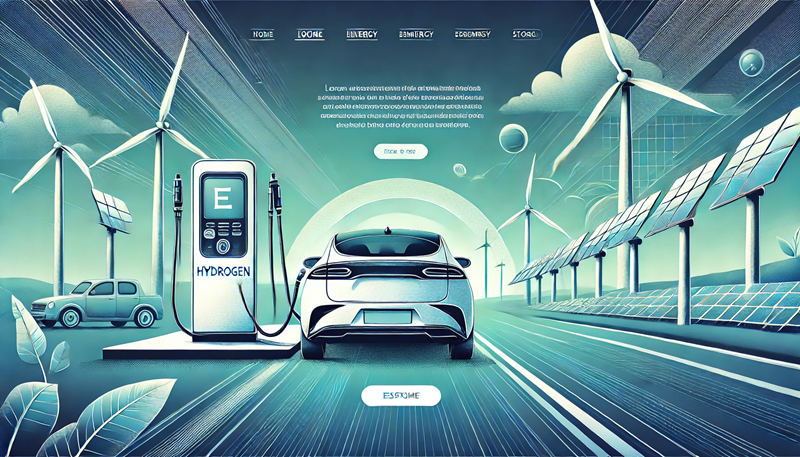For years, hydrogen-powered vehicles (FCEVs) have been marketed as the future of green mobility, offering the promise of zero emissions, quick refueling, and sustainability. However, despite significant investment from automakers and government initiatives, hydrogen cars have struggled to gain market traction.
While Toyota, Hyundai, and Honda continue to champion hydrogen technology, sales have plummeted, infrastructure remains sparse, and battery electric vehicles (BEVs) are taking the lead. Does this mean that hydrogen cars are a failing dream? Let’s analyze the latest data, challenges, and where automakers stand on hydrogen’s future.
Hydrogen Car Sales Are Falling Sharply
Sales figures from 2024 highlight the challenges facing hydrogen-powered cars. In the United States, only 99 hydrogen fuel cell cars were sold in the second quarter of 2024, representing a 91% drop from the same period in 2023—the lowest since 2015. (Source)
Global Hydrogen Car Market Shrinking
📉 Worldwide FCEV sales declined by 17.4% in the first three quarters of 2024, with only 9,946 units sold compared to 12,034 in 2023. This downward trend suggests consumers are turning away from hydrogen cars. (Source)
🚀 Meanwhile, battery electric vehicles (BEVs) are thriving:
- China’s EV sales grew by over 40% in 2024, while gasoline car sales declined sharply.
- The EU and US have seen record-breaking EV adoption rates, with government incentives favoring BEVs over hydrogen.
Where Do Automakers Stand on Hydrogen?
Several major car manufacturers initially backed hydrogen cars but are now shifting strategies:
🚗 Toyota – Still committed to hydrogen, but shifting towards commercial trucks and fleet vehicles rather than personal cars. (Source)
🚗 Hyundai – Continues to produce the Nexo FCEV, but sales are sluggish, and recent recalls have raised concerns about fuel leaks and fire risks. (Source)
🚗 BMW – Plans to release hydrogen-powered cars in 2028, but only as a niche offering for select markets. (Source)
Why Are Hydrogen Cars Failing?
Several critical barriers prevent hydrogen cars from competing with EVs.
1. Hydrogen Cars Are Too Expensive
💰 Hydrogen fuel cell vehicles (FCEVs) remain costly due to expensive platinum-based fuel cells and complex hydrogen storage systems.
🚗 Example: The Toyota Mirai costs around $50,000, significantly higher than many affordable BEVs on the market.
2. Hydrogen Infrastructure Is Lacking
🔌 Hydrogen refueling stations are scarce—compared to the widespread growth of EV charging stations.
Global Hydrogen Refueling Station Count (2024):
- California: Fewer than 60 public hydrogen stations, while over 90,000 EV chargers exist.
- Europe: Only 250 hydrogen stations compared to 500,000+ EV chargers.
- China: Rapidly expanding EV charging networks, but hydrogen remains underdeveloped.
Without massive investments in refueling stations, hydrogen-powered cars remain inaccessible to most consumers.
3. Hydrogen Cars Are Less Efficient Than EVs
⚡ Hydrogen fuel cell technology loses more energy compared to battery electric vehicles.
🚀 Energy Efficiency Comparison:
- Battery EVs convert ~85% of electricity into motion.
- Hydrogen fuel cells convert only ~30-40%.
- Hydrogen production, storage, and transport add inefficiencies.
EVs require less energy and use existing power grids, making them more practical for mass adoption.
4. Safety Concerns and Recalls
🚨 Hydrogen is highly flammable, and concerns over fuel leaks and storage safety have surfaced.
In 2024, Hyundai recalled nearly 1,600 Nexo hydrogen fuel cell SUVs due to fuel leaks and fire hazards, urging customers to park their cars outdoors. (Source)
💡 Consumers worry about safety risks, making them hesitant to invest in hydrogen-powered cars.
Future of Hydrogen: Where Can It Succeed?
While hydrogen passenger cars struggle, hydrogen fuel cells may still play a vital role in other sectors.
1. Hydrogen in Commercial and Heavy Transport
🚚 Hydrogen is better suited for trucks, buses, and freight transport where long-range and fast refueling are crucial.
💡 Toyota, Daimler, and Volvo are investing in hydrogen-powered trucks rather than consumer cars.
2. Hydrogen for Industrial Applications
🏭 Hydrogen is being explored for industrial decarbonization in sectors like steel manufacturing, aviation, and shipping.
3. Hydrogen-Powered Public Transport
🚆 Several cities are testing hydrogen-powered trains and buses to reduce urban emissions without requiring extensive charging infrastructure.
Conclusion: Is Hydrogen a Failing Dream?
For passenger vehicles, hydrogen-powered cars appear to be losing the race to battery EVs due to high costs, infrastructure limitations, and inefficiency.
🚗 Automakers are shifting towards hydrogen trucks and fleet vehicles, where its benefits outweigh its downsides.
🔥 Key Takeaways:
✅ Hydrogen car sales are declining, while EV adoption is surging.
✅ Refueling infrastructure remains a major barrier to mass adoption.
✅ Hydrogen is more viable in trucking, public transport, and industrial applications.
While hydrogen may not dominate the consumer car market, its future could lie in commercial and heavy-duty transport.
